Monday, June 6, 2016 Making Strides: Increasing Minority Student Graduation Rates
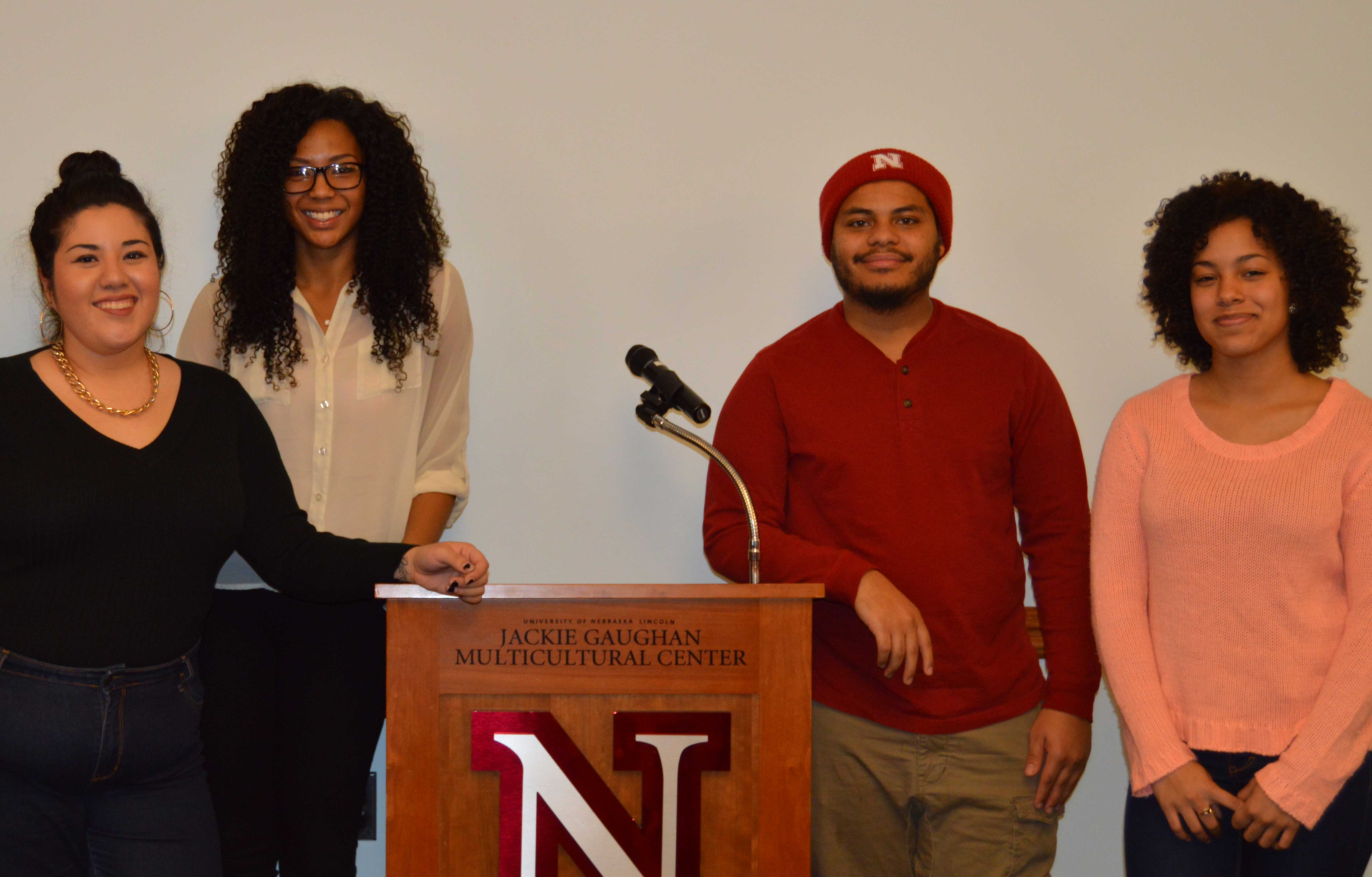
In March the University of Nebraska-Lincoln was recognized by The Education Trust for its 10-point reduction in the achievement gap between white and black students between 2003 and 2013. At the same time, UNL increased the overall graduation rate by 4.5 percent. While there is room for continued improvement, this great feat should be celebrated and studied to examine how to further close the achievement gap for minority students.
The Revolving Door
Prior to 2003, the black faculty and staff members at UNL had noticed a void in campus diversity. While it was broadly known that UNL faced challenges in recruiting a diverse faculty and staff, greater concern developed around the inability to keep black faculty on campus.
A small group known as the African American Caucus (AAC) developed in the late 1990s to help new black faculty members acclimate to UNL and the Lincoln community. The group noticed that despite slight statistical increases in the number of black faculty at UNL, they never saw other black professionals on campus. Hence, the group set forth with a concerted effort to encourage retention of black professionals at UNL and a mission of building a community where black faculty and staff members felt more comfortable.
In conversation with one another, members of the AAC noticed a strange trend regarding black students at UNL.
“I taught upper-level courses and was struck by the fact that I never had any black students in my classes; and I would rarely see them even in the halls of CBA (the College of Business Administration). I thought maybe it was just CBA, but in conversation we realized we don’t see many upper-division black students,” said Colleen Jones, College of Business professor emerita.
Jones notes that the freshman students were seen in class, participating in multicultural events on campus, participating in TRIO study skill seminars – but then the students disappeared. The caucus group hypothesized whether this meant that the students weren’t registering or whether they were transferring to other educational institutions. However, regardless, the group saw an issue with a revolving door of black students.
To further exacerbate the issue, a rash of micro-inequities became prevalent on the UNL campus in the early 2000s. Issues with students inappropriately using black-face, racial slurs appearing on common sidewalks and students being targeted and bullied in the basement of Selleck highlighted the need for UNL administrators to take action.
Setting the Stage for Success
In 2003, Vice Chancellor for Student Affairs James Griesen merged the Minority Assistance Program, a section of Multicultural Affairs, with the programming-arm of the Culture Center. Known by the acronym OASIS, the new entity focused on academic support, cultural programming, advising to students and advising to cultural student organizations. During the same year, the federally-funded TRIO programs that support eligible students from disadvantaged backgrounds became a stand-alone department in Student Affairs, increasing both staffing and resources dedicated to minority student populations.
“Combining the Cultural Center and Multicultural Affairs married two integral pieces to present a cohesive and coherent department to meet the needs for traditionally multicultural groups,” said Linda Major, director of the center for civic engagement and assistant to the vice chancellor.
At the same time, members of the AAC voiced concerns regarding the number of black professionals and students leaving UNL to Chancellor Harvey Perlman. To work toward remedying the situation, the group brought forth a proposal for an “urban-transitions community” to help black students and first generation students of color assimilate to campus.
Research from peer institutions had shown that students needed to find a community of peers similar to themselves. Caucus members felt it was essential for black students at UNL to see one another outside of classes and regardless of major to find people with whom they could relate. The group wanted to work with and watch the students to identify when they were not doing well to provide early intervention.
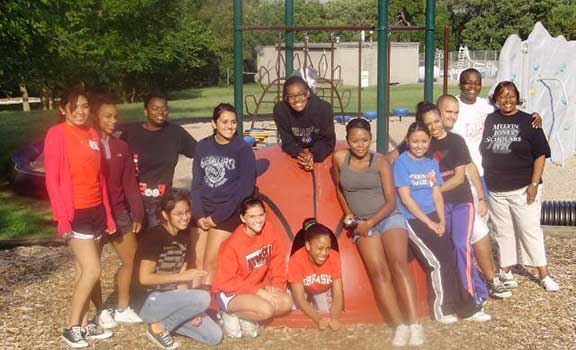
“It almost seemed as if we were going back in time because we were suggesting that these students live together in the residence halls,” said Jones. “To our surprise, Harvey bought it. He said, ‘ok – how do you want to put this together?’”
The team decided to partner with Amber Williams, a new recruiter in Admissions whose position focused on bringing first generation and minority students to UNL. Williams could identify and recommend students who may benefit from the support of a peer living community.
However, members of the AAC became concerned that the name of the community was ambiguous. The group decided a more fitting name would be the Melvin Jones Scholars, a tribute to the late Melvin Jones, a vice chancellor for business and finance at UNL, an upstanding citizen and a passionate mentor in the Lincoln community.
“Melvin was all about mentoring – and he was an upstanding citizen, a leader, engaged in the community and is the kind of icon students could aspire to without embarrassment. And it also could be multicultural,” said his wife, Colleen Jones.
A Campus "Family"
In the fall of 2004, the Melvin Jones Scholars launched with 28 students living together in the north tower of Abel residence hall. Two juniors served as peer mentors and students met as a group every 1-2 weeks with voluntary faculty and staff.
Contrary to popular belief, the Jones Scholars program did not award scholarships, but advisors to the students did advocate on their behalf to help negotiate financial aid processes and assist in parent education.
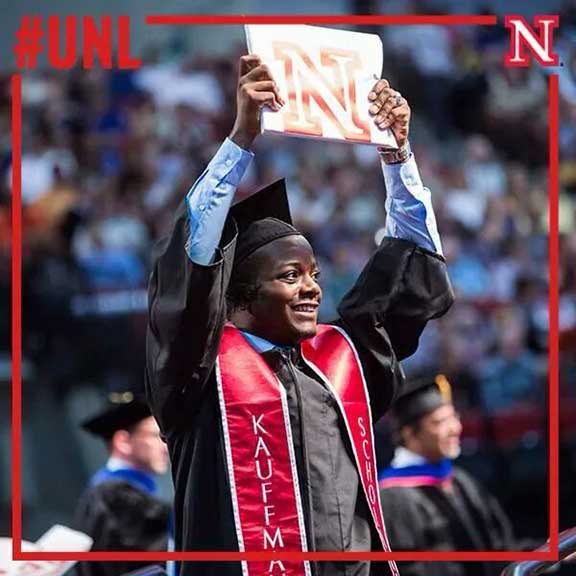
Around the same time, turnover in TRIO personnel led to renewed connections to the minority student populations. Newly hired persons of of color provided mentors with whom students could identify and relate.
Expanding Services and Visibility
By 2006, the UNL campus community could see that aligning programming and academic support for minority students in one location was a positive change – and challenged greatly by the lack of available space in the small Culture Center facility on 14th Street.
Since 1999 conversations had circulated about constructing a new multicultural center to increase the level of service and exposure to multicultural activities on campus, which would cause an increase in student fees. A 2002 survey during the ASUN Student Government election showed that the initiative lacked student support when the student fee increase failed by a 2-to-1 margin.
When the increase was again proposed in 2006, students overwhelmingly showed their support. This time administrators and student leaders partnered to provide greater details about the location, price tag and increased programming possibilities. The increase of $12 per semester in student fees passed with 1,839 votes for and 644 against.
“The second time around the white students showed their support for the project. In particular, the Greeks got behind the project which provided the needed votes to support the minority students,” said Cay Yamamoto, director of TRIO programs.
With students providing half of the $8.7 million in construction costs, the University of Nebraska Foundation was tasked with identifying donors to generate the remaining support for the 30,000 square foot facility adjacent to the Nebraska Union. The vision for the multicultural center was audacious as it would be the largest university multicultural center in the country attached to a student union. The center included three floors with computer labs, lounges and meeting rooms. A gift by the Kawasaki Motors Manufacturing Corporation of Lincoln provided for an upstairs Japanese reading room.
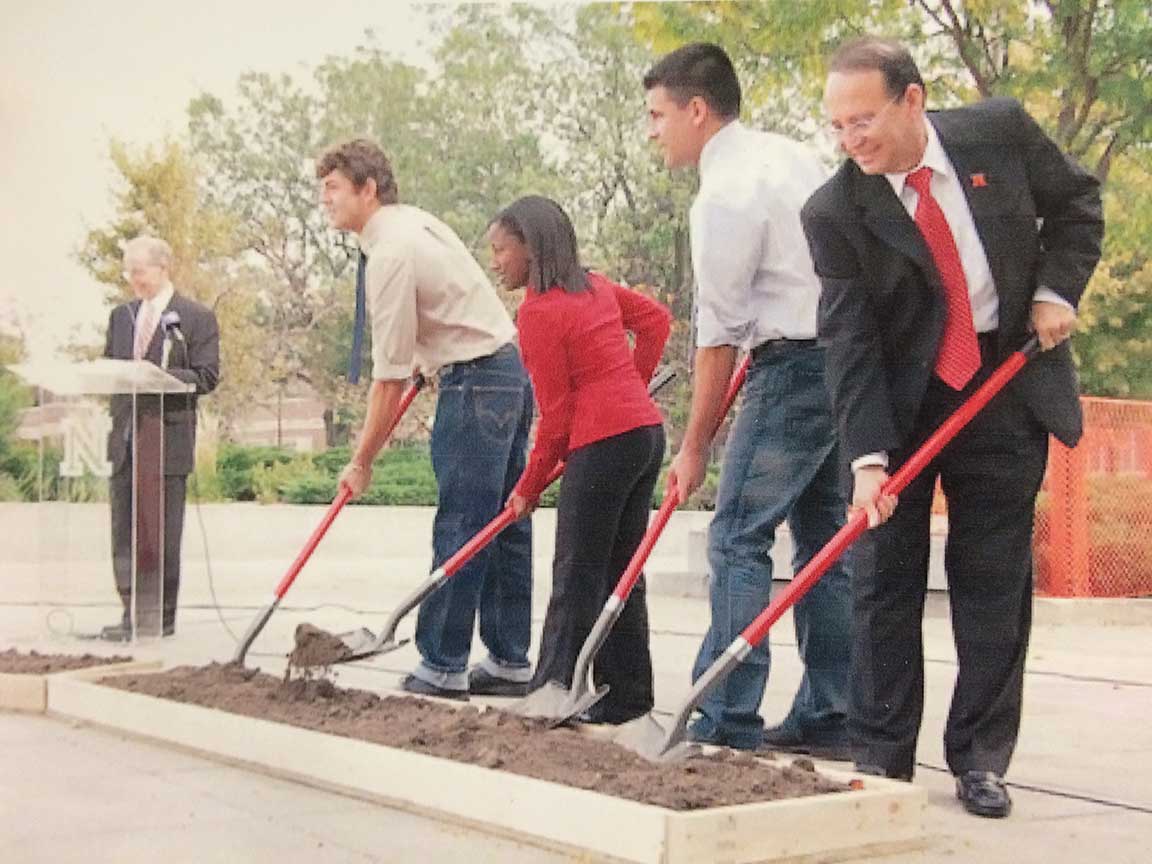
A significant gift by the Gaughan family provided the capstone gift in honor Jackie Gaughan, who was one of the first in the Las Vegas casino industry to hire multicultural staff members. As a native Nebraskan and a believer in higher education, Gaughan looked forward to providing a place where UNL students could learn to be respectful of diversity.
In spring 2010, the long awaited building moved from the blueprint to reality when the center opened. With the new building, students gained an incredible resource and the University demonstrated a commitment to supporting black and other minority students. With the increase in space and new amenities in the Jackie Gaughan Multicultural Center, students flourished.
“Students utilizing the Gaughan Center will tell you they have found a home away from home. They describe the Center as a safe space in which they can interact with others in a comfortable, supportive environment,” said Jake Kirkland, interim directory of the Office of Academic Success and Intercultural Services and the Jackie Gaughan Multicultural Center.
“The Center staff provides care, concern and encouragement for students. Support for academic success and opportunities for students to learn about and interact with other cultures is a cornerstone of the Center.”
Becoming an Inclusive Community
As UNL experienced a few incidents of bigotry and insensitivity in fall 2013 and racial tensions from other Midwest campuses turned academic environments into hostile grounds, Chancellor Harvey Perlman stood firm in the stance that the University of Nebraska-Lincoln could provide a richer experience to all students in a campus environment that rejects intolerance and respects diversity.
“I urge us not to remain silent or indifferent, but to confront and speak out against such outrages and embrace those against whom they are directed,” wrote Perlman. In coordination with Student Affairs, he launched a public call to action with the ‘Not Here, Not Now, Not Ever!’ campaign, a list of proposed University actions to improve the campus climate and further demonstrate a commitment to inclusion.
“Student Affairs plays a vital role in the recruitment and retention of all students, including students of color,” said Juan N. Franco, vice chancellor for student affairs. “While the Jackie Gaughan Multicultural Center may be the most visible sign of Student Affairs to our students, we also invest heavily in programs to help recruit and retain our students. Our goal is not only to help ensure our students graduate, but we want them to thrive while they are here.”
The call to action was reiterated by students in fall 2015 when the Black Lives Matter movement swept through campuses nationwide. Several presidents of minority and culturally-based recognized student organizations at UNL worked together to create a rally on campus that provided a venue for students to share their concerns about stereotypes, racial profiling and the need for inclusivity. Around the same time, UNL Residence Life hosted Alicia Garza, founder of the #BlackLivesMatter, to speak on campus.
As minority students develop their networks among the UNL campus community, many of the programs and support services that Student Affairs founded more than a decade ago still prove relevant today.
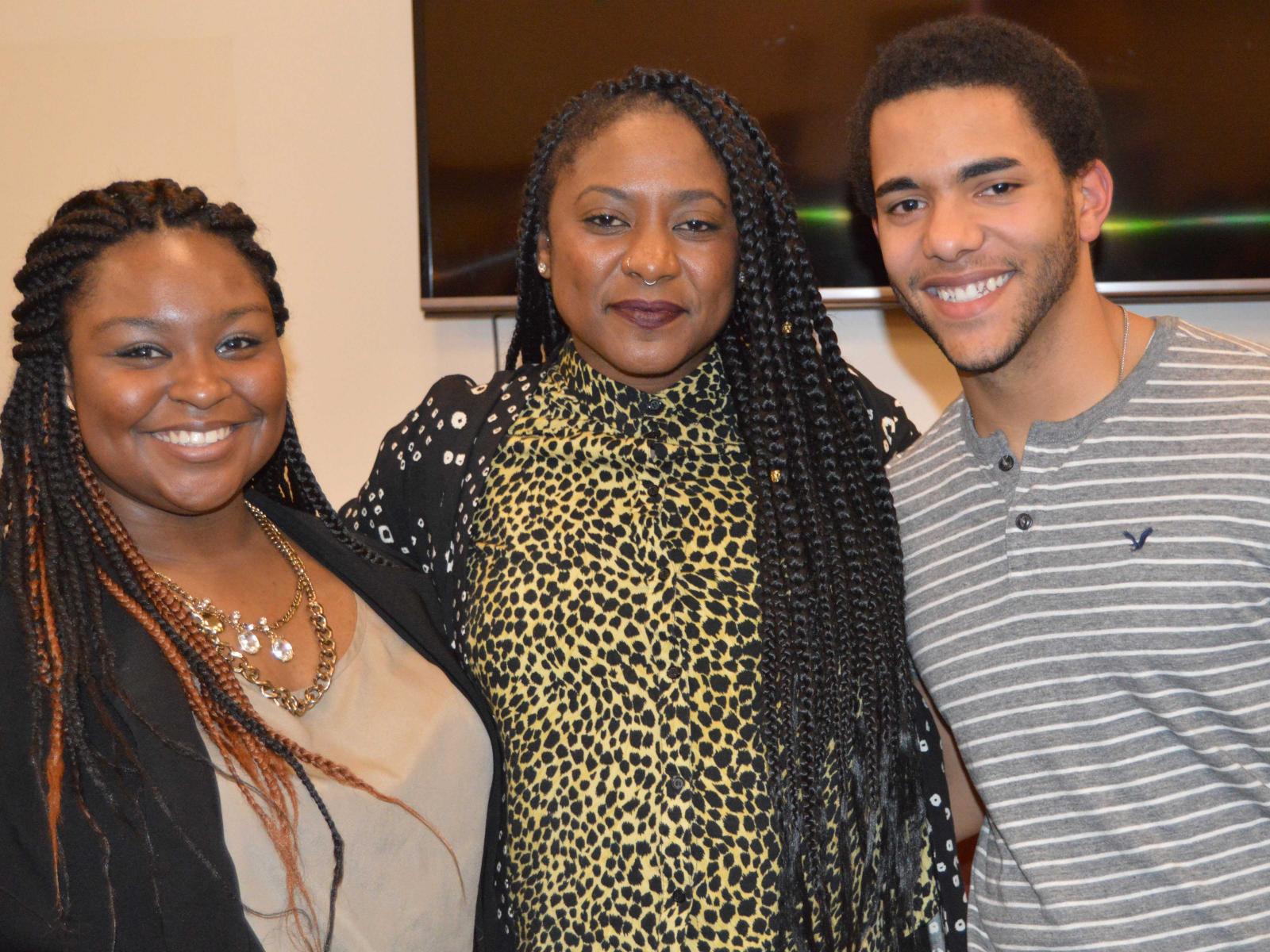
- Jones scholars still live together and meet regularly in a residence hall. Today funds from the Jones family foundation occasionally support students for study abroad experiences, provide proper clothing for job interviews, and pay for graduation fees like caps and gowns because Jones feels it is important for the community to see people of color graduating. She also promises students that the Foundation will pay for the first administration of graduate school exams.
- Multicultural fraternity and sorority organizations continue to excel at UNL. Originally introduced in 1916, these organizations have provided a support network for hundreds of minority students at UNL. In the 2015-2016 academic year participation significantly increased and additional organizations are expected to come to campus this fall.
- Federally-funded TRIO grants continue to assist students by providing study skill seminars and specialized course listings.
- The OASIS peer mentorship program, Student Success Seminar and cultural event programming continues to inspire minority students to become involved and connected to campus. Program surveys from 2016 show that 86% of participants in the OASIS mentorship program felt more confident in their academic abilities. Similary, 80% of Student Success Seminar participants recognized that social activities and outside-the-classroom experiences could contribute to their success as a student.
- The Nebraska College Preparatory Academy continues to help first-generation and low-income students from Grand Island Senior High School and Omaha North High Magnet School pursue higher education. Through strategic academic planning and coursework in high school, the program prepares students for college and includes summer programs at UNL.
- The Office of the Vice Chancellor for Student Affairs has annually sponsored the Empowerment Forum, a day-long seminar to initiate dialogue about diversity and inclusion within the UNL community.
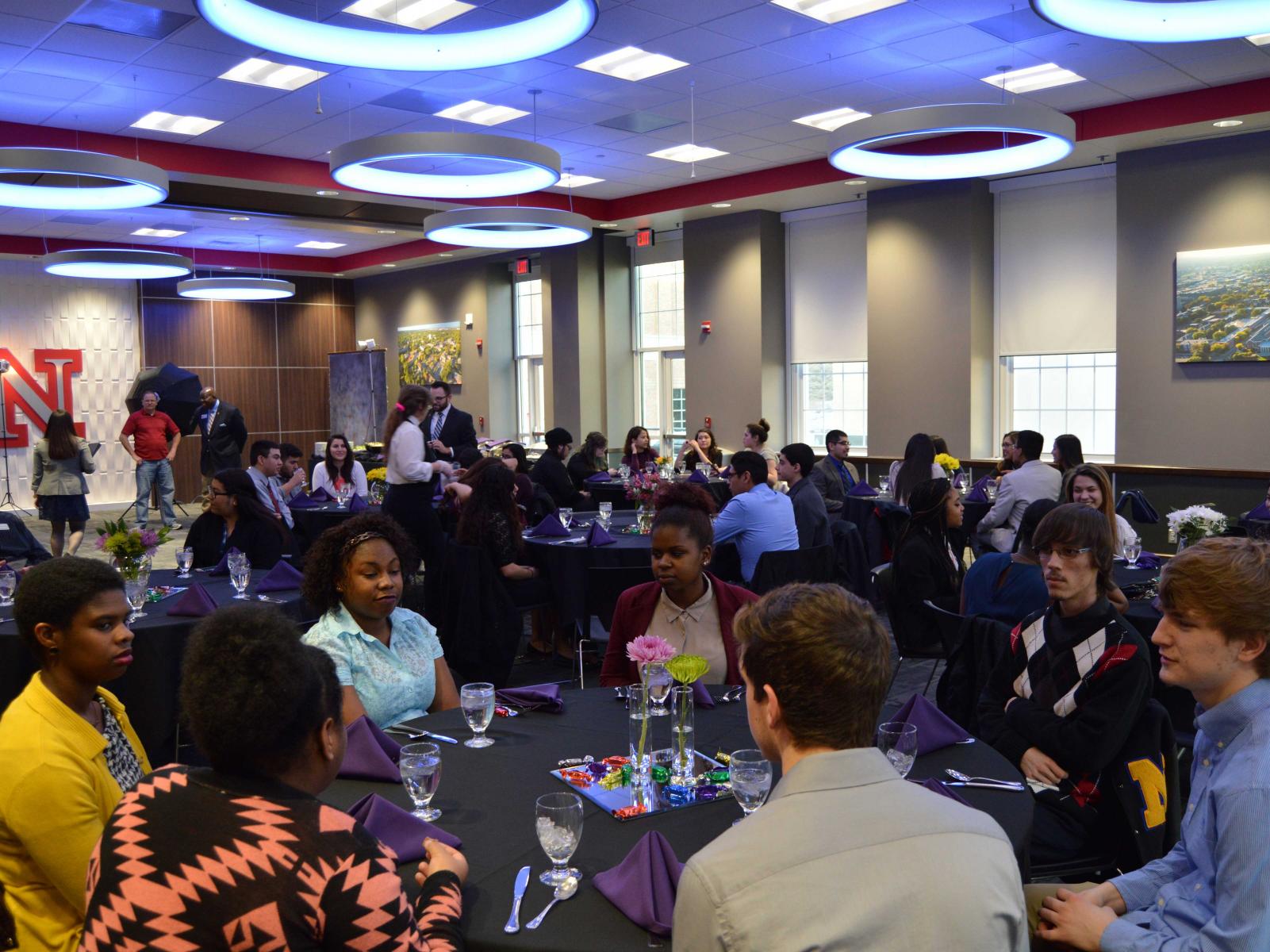
In 2016 the Jackie Gaughan Multicultural Center hosted an average of more than 220 meetings and events each month, with nearly 30 percent of those events being hosted by recognized student organizations, many of them culturally-affiliated.
“During the six years that the Center has been open, students have made a concerted effort to assume responsibility and ownership of this safe and welcoming space,” added Kirkland.
In the next decade UNL strives to become the most inclusive campus in the country. After all, only on a campus where minority students feel they matter will they succeed in the classroom, persist to graduation and fulfill the highest of expectations. Student Affairs professionals and our associated departments understand the need to stand ready to address the changing needs of our students; and we are committed to increasing the appreciation of all cultures and beliefs to provide the optimal learning environment.